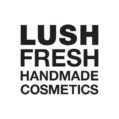The State of the Global DTC Ecosystem: Q&A with The Boston Associates
by Hugh Williams on 25th Apr 2019 in News


In this Q&A, DTC Daily speaks to Ronald C. Pruett, Jr., managing partner, The Boston Associates, who takes a look at the direct-to-consumer ecosystem from a global perspective, analysing which areas are hotbeds for DTC brands, why they are seeing such strong growth, and what others can do to keep pace.
Can you explain the role you play in helping direct-to-consumer brands?
The Boston Associates partners with companies on an "advisor to operator" model. This means we jump into companies alongside management and, if all goes according to plan, we join the team. The approach has proven to be quite effective largely because we are native to the direct-to-consumer world. Our focus for two decades has been on direct-to-consumer companies and brands. Basically, we're addicted to quantitative marketing. The ability to judge marketing efforts in real time is addictive and seems to be the way most advertising is headed globally. In the late 90's, we were part of the team that launched Insurance.com (backed by Fidelity Investments) and that led to investor and board calls seeking help with more TV-centric operations too. That included products driven by direct response TV (DRTV) and infomercials. Our biggest success here was with the team that reorganised and sold Liberty Medical for USD$1.5bn/£1.2bn in 2007, still one of the largest omni-channel DTC exits ever.
New York is a hotbed for DTC brands - but beyond this, where are American DTCs looking to expand to?
If the DTC Index and IAB Top 250 lists are gauges, then New York and LA are clearly where the DTC action is in the States. That doesn't bode well for my native Boston. There are numerous reasons for this including the consumer-focused venture capital ecosystems, e-commerce and tech talent, and strategic local partners in retail, media and entertainment. Together these two cities make up nearly 60% of the new DTC or DNVB companies. From an expansion standpoint, I believe too many of these companies are moving too quickly to establish retail stores. Moving online to offline requires a magnitude of skills and funding few possess. Casper and Away are two likely successes in this regard. But for others, there are other distribution channels, like TV and radio, that could be leveraged far better. Home shopping is being overlooked too. A number of the larger DTC brands are moving to Europe or, like DollarShave Club, are being acquired by European conglomerates like Unilever. And a few US DTC companies are tepidly eying China. As just mentioned, Asia remains a significant opportunity for so many especially on platforms such as TaoBao or TMall, owned by Alibaba. Their services are similar to Amazon's FBA programs and allow for rapid testing and inventory capabilities in these huge markets. My instinct would be to move into the China market first before Europe, as the consumer numbers there, the advanced use of mobile commerce and the love of foreign brands are so pronounced. It is still early days for US brands in this regard.
What is the state of the American direct-to-consumer market, compared to APAC, Europe and Africa?
Direct marketing and direct-to-consumer concepts are really native to Americans. From the Sears catalog and Fuller Brush salesmen to radio and then DRTV and infomercials, the idea of buying directly has been readily accepted by our culture. Many leading door to door brands like Avon and Tupperware were built this way too. So fast forward to Web-centric companies and the new DTC brands, I think it was natural that many were founded in the States. Then the Millennial technology usage just unleashed it with a fury. There's an amazing demand for new brands across all categories. But that is also happening in China largely due to the aggressive and smart growth of the Chinese platforms like Alibaba, Tencent and JD. A recent trip to China confirmed for me that their platforms were built for commerce. Whereas Facebook was built around advertising. They've had to adapt to commerce. That's where Amazon has an unbelievable lead in the States. But, in China, the payment systems like WePay, the use of live streaming for social selling, and the extensive logistics systems are really impressive. Recently it was reported that nearly 200 apps in China had live streaming functionality and Taobao Live claims to have a 50% conversion rate. So at this point, I'd say it is anyone's race to win. Ultimately, consumers worldwide will be the beneficiaries. Then that leads to Africa, the next big battleground. Players from all over are trying to get a foothold in the large markets there like Nigeria. The recent IPO of Rocket Internet-backed Jumia has been interesting to watch and there will be many others following I suspect.
Looking at the European DTC market, what do you think needs to happen for these businesses to make ground on their American counterparts?
I've spent many years living in and traveling to Europe and am always impressed by the ability of its leading companies to adapt, compete and thrive since many of their native markets are smaller than, say, the States or China. So I have no fears that many European DTC brands will be successful world leaders especially in categories like luxury anything, apparel, food and, my favourite, wine. Just look at Farfetch. That's an amazing company. The European venture capital community is thriving too with leaders like Index, Rocket Internet and now Heartcore Capital in France just focusing on consumer startups. That is smart. And retailers like Ikea are showing others globally how to compete against the so called "disruptors". Not too long ago they acquired Task Rabbit in the States to expand their home improvement offerings. And I can't forget the prowess of the ad and marketing agencies like WPP and Publicis which are helping all of these upstarts to take off. So I think the who is the teacher versus student question will depend upon the category when all is said and done.
Cosmetics business Lush have recently quit social media in the UK - is social still important as an acquisition / branding tool, even as DTCs open more physical locations?
I think Lush has made the most interesting marketing move since P&G announced it was going heavy on Web marketing and cutting its historically favourite channels like TV. It was quite bold and worth the risk, as long as it is a closely watched test. Now P&G, as you may recall, subsequently reversed its decision because their numbers started to sputter. But, it made news and got many advertisers to sit up and really dig into their spending results. Lush is doing the same thing in my opinion. They're calling out what many have known for a long time; it is hard to prove the real success of social media when it comes to sales. But I think managing retail stores for many new brands will prove difficult and damaging. Most new DTC's would be better off selling themselves or partnering to gain retail access. Many Chinese companies have been more successful with live streaming, for instance, so I hold out hope that this will be the case worldwide before too long. But, in any event, the Lush story will make for its own case study.







Follow Fast Growth Brands